‘Gullak’: A nostalgic ode to middle-class life in India
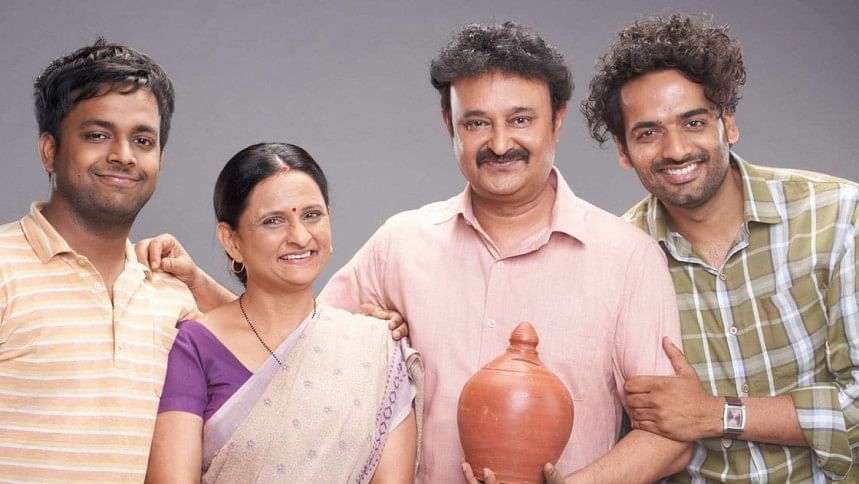
Family dramas have long played a vital role in shaping the tastes of subcontinental audiences and cultivating their love for cinema. However, the rise of OTT platforms has created a significant gap in this genre. In an era dominated by violence and thrillers, the absence of family shows is acutely felt. Enter "Gullak", a web series that quietly tells its story amidst this scarcity. "Gullak" chronicles the life of a simple family through a straightforward narrative.
When "Gullak" first appeared on SonyLiv in 2019, produced by TVF, the OTT phenomenon had not yet gained widespread popularity. During that time, "Gullak" began recounting the story of the Mishra family, a household of four. Early in the show, a clay piggy bank, serving as the narrator (voiced by Shivankit Singh Parihar), explains, "'Gullak' is not a story but a series of anecdotes."
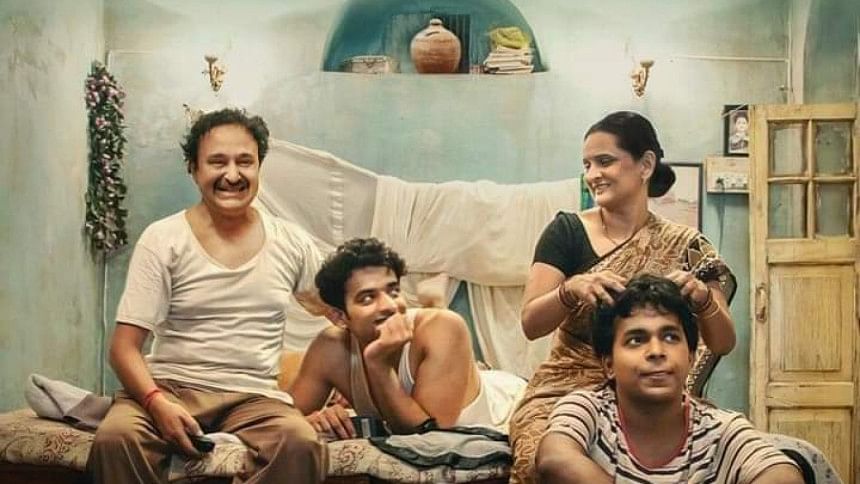
True to its word, the series unfolds through various events in the lives of the Mishras. There's the loving and sarcastic mother Shanti (Geetanjali Kulkarni), who rarely speaks without yelling, her endearing and forgiving husband Santosh (Jameel Khan), who works at the local electricity division, their elder son Annu (Vaibhav Raj Gupta), who worries about the family's future and is preparing for the Staff Selection Commission (SSC) exams, and his happy-go-lucky younger brother Aman (Harsh Mayar), his partner-in-crime. Throughout the series, glimpses of the 90s appear in conversations, song choices, and familial crises, making "Gullak" a tribute to 90s India.
The story of "Gullak" is essentially a commentary from a piggy bank—a clay one that silently witnesses the everyday lives of the Mishra family. Through Gullak's eyes, we see the events that unfold within the Mishra household. Each family member's crises revolve around real-life issues that any middle-class family can relate to. A two-room house with a small courtyard and narrow terrace sets the scene. Directed by Amit Raj Gupta and written by Nikhil Vijay, "Gullak" paints a vivid picture.
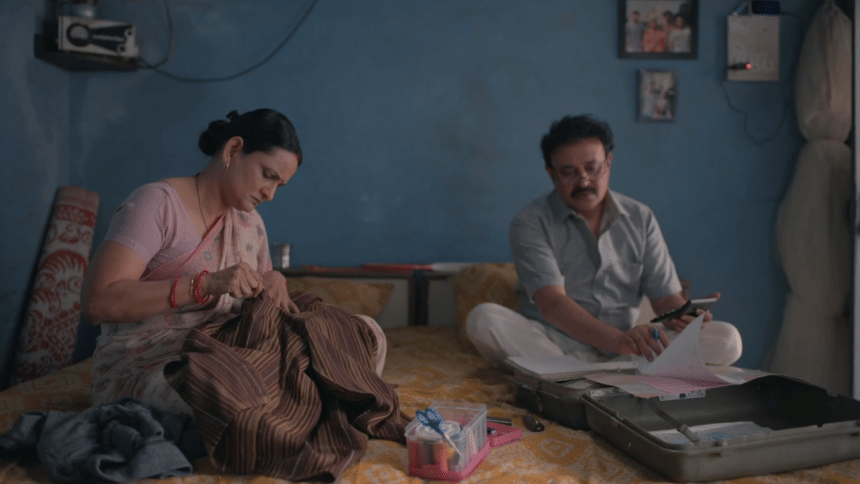
When "Gullak" made its debut in 2019, we hadn't yet realised how much we would come to miss the remnants of the 90s. Just as 90s nostalgia was privatised in "Yeh Meri Family", "Gullak" captures the essence of "small-town India" through the lives of the Mishra family.
The opening credits, paired with a soothing track, create a montage of narrow lanes, tangled electrical wires, water tanks, papads and red chilies drying on rooftops, a fluttering calendar, a squeezed toothpaste tube, and elaichi grinders. The first episode builds on this atmosphere, beginning with the rhythmic thumping of a washing machine in the bustling Mishra household.
The episodes are short, averaging around 20 minutes each. In five episodes, five specific stories unfold, with each episode helping to build the characters. In a short time, each character becomes strong and drives the story forward. Directed by Palash Vaswani and penned by Durgesh Singh, this series delves into the daily lives of the Mishra family from a small town.
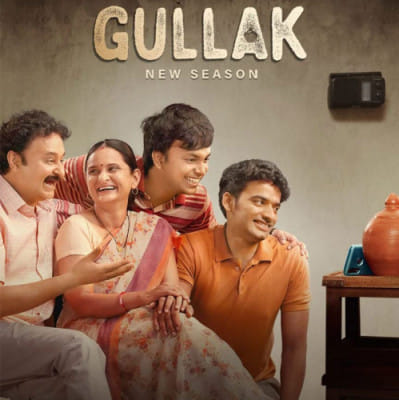
The first season of "Gullak" tells the story of a family at a stage when their transition between generations hasn't yet begun. The relatable presentation of how middle-class indulgences are interconnected is evident when Santosh finally gets a full massage after fulfilling his son's wish (reminiscent of Kuber buying a sari for his wife in the novel "Padma Nadir Majhi").
Everyday events are used as metaphors in this series. For instance, the power goes out and comes back before everything can be settled, only to go out again. This coming and going is something every middle-class family can relate to with their salary. While mothers may control what comes and goes in a middle-class home, they have no control over the electricity—a brilliant dialogue.
In this season, Annu's laptop logo is covered, indicating that OTT's full independence hadn't started yet. The songs and music are steeped in 90s nostalgia, and the mixing is done in such a way that it feels like regular conversations at home, with a neighbor sipping tea and listening to music in the background.
On January 15, 2021, the second season of "Gullak" was released. Much like the inaugural season, this sequel retains all the main characters, with the story narrated via a clay piggy bank named Gullak. The screenplay remains steady and engaging, though the increased emotional drama makes the 30-40 minute episodes feel somewhat prolonged. Despite this, the TVF series stands out for its simplicity, making it an intriguing watch.
Additionally, Anurag Saikia's background score complements the narrative beautifully, while the catchy title track by Jazim Sharma and Simran Hora, along with Kailash Kher's "Tu Mera Raazi", is a highlight.
In the second season, there is a noticeable OTT vibe. Yet, there is a strong effort to stay true to the original essence of Gullak. Labelling spice jars, diluting milk with water in the kheer—these small details reflect the beautiful struggle of acknowledging one's middle-class existence. The Mishra family's bed serves as their living room. Everything from meals to conversations happens there. The concept of a drawing room is not for them, and even their close neighbor, Bittu's Mom (Sunita Rajwar), joins in on the bed. Sofas are reserved for more formal people. The camera frames everyone together, much like how a middle-class teenage child sits in a corner from where they can hear and see everyone during a chat. Santosh Mishra's financial struggles continually remind us that the world is not kind to the honest middle class. Shanti emerges as the familiar housewife whose deep understanding of life often goes unacknowledged by middle-class men.
The series touches on Indian nationalism through cricket and explores dark politics. Yet, amidst these stories, Annu's failure to pass the SSC exam, and the burden he becomes to his family loom large. Annu's hesitation to join in during a family photoshoot after Aman's exam result still resonates on social media. The scene where Annu's father sends money to him through his mom to give Aman a reward captures the reality upon which middle-class struggles in the subcontinent rest.
Keeping the same director and writer, the third season was released on April 7, 2022. Annu now has a job as a Medical Representative. Middle-class youth often chase the mirage of happiness once they enter the workforce, and their first disillusionment begins when family needs take precedence over personal desires. Annu sacrificing his dream shoes to pay for Aman's education expenses is a case in point.
Here, problems are addressed, and solutions are found. No issue is blown out of proportion, yet small problems are magnified due to everyone's egos. One notable aspect of Gullak's third season is its shift towards a more dramatic and darker tone. The themes explored are more serious than in the previous two seasons, and the stakes often feel higher. This change makes the show less light-hearted than before. Some might interpret this as a reflection of the 'not-so-light' brought about by the second wave of the Covid pandemic, but that could be reading too much into it.
In this season, we see Santosh getting an LTA, Aman seeking family approval to shift from science to arts, which goes against the traditional middle-class family norm. We see Annu becoming a corporate guy. The mutual transitions shaped by the Covid era are evident in this season. Despite the increase in seriousness, particularly evident in this season, the show remains well-crafted. It addresses significant issues without becoming preachy. However, the real highlight of the third instalment is not Santosh, Shanti, Aman, or Annu; it is the surprise package called Ketaki Kulkarni, who shines as Furteeli, the twenty-something woman trying to find herself. The time from arranging her marriage to her rejecting it becomes a discussion-worthy matter of women's empowerment, featuring Shanti and Furteeli.
The familiar middle-class confusion of raising the AC temperature, changing the colour of the house, the neighbour's interference during family outings, and the Lofi version of the intro music in the fifth episode all keep "Gullak" in its familiar essence.
Recently, the fourth season was released, directed by Shreyansh Pandey. In its five 30-minute episodes, the latest season explores themes such as bribery related to illegal structural additions to a humble home, the consequences of chain-snatching not only on the victim but also on their family, the necessity of being clever while maintaining one's values and self-respect, the challenges of aspiring to move up the social ladder and dealing with a rude boss, and most intriguingly, the struggles of 'adulting' and parenting, a term humorously used by the narrator Gullak, voiced by Parihar.
This tentative step towards addressing teenage issues, where sex is a primary concern for adolescents going through puberty, signals that the show is finally prepared to tackle these sensitive topics. The pressure to be a source of 'clean family entertainment' by avoiding or sanitizing such subjects had begun to become noticeable.
"Gullak" possesses an innocence. This series has softly reached its audience, earning their trust over time. Perhaps its biggest allure is its uniqueness as a family dramedy. Leveraging this distinctiveness, it gradually brings sensitive yet discussion-worthy topics to the forefront, which is promising.
However, Gullak's long-standing desire to remain apolitical is problematic. Stepping softly away from this stance could potentially yield even richer stories.
The absence of direct references to Covid and post-Covid changes in the narrative highlights a limitation in the screenplay. Beyond these issues, Gullak itself becomes a significant concern. The series is so natural and spontaneous that viewers easily immerse themselves in the story. Yet, the current role of the narrator, Gullak, has shifted from narrating to critiquing and commenting. This shift affects the storytelling's ability to make viewers think deeply. Instead, these narrations constrain the audience's space for contemplation. "Gullak" needs to move away from this approach.
The influence of social media in middle-class households and its consequences, or the current political reality in India, are topics "Gullak" must address to maintain its relevance. Without doing so, it risks losing its significance soon.
Nevertheless, there is no doubt that audiences will eagerly await season 5 of this family drama.

 For all latest news, follow The Daily Star's Google News channel.
For all latest news, follow The Daily Star's Google News channel. 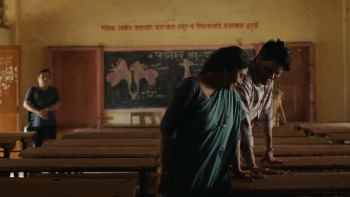
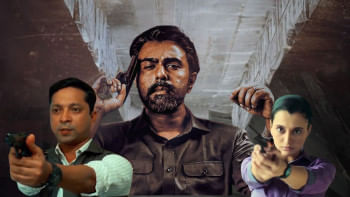






Comments